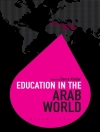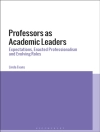‘The lessons build on one another and are clearly sequenced from teacher-led instruction to group instruction to independent practice. Readers will find suggested accountability and differentiated instruction ideas right at their fingertips. It is hard to find books targeted to the early grades, and this one covers many areas important to the K–3 educator.’
—Tanya Phaturos, Reading Specialist
Park Elementary School, Holbrook, AZ
‘Emphasizes practical activities presented in a consistent format that can be used with students to enhance their literacy development.’
—Wanda Mangum, Language Arts Instructional Coach
Gwinnett County Public Schools, GA
Research-proven strategies to foster early literacy success!
Building strong literacy skills is the basis for helping all children read by the end of third grade. This hands-on guide shows teachers how to use research-based strategies and structured lessons to teach essential skills for literacy success in Grades K–3. The activities are designed by literacy specialists and teachers to build proficiency in four key areas: recognizing and naming letters, hearing and manipulating sounds in words, associating sounds with letters and using them to form words, and reading words in connected text effortlessly.
Addressing the needs of a diverse classroom, this book offers:
- Assessment guidelines and tools that inform instruction and help adjust teaching to support individual learning needs
- An array of ready-to-use strategies, tips, and reproducibles
- Research on teaching early literacy skills to all students
This book is designed for educators and other professionals who teach children of any proficiency level, but is equally appropriate for teaching students who experience difficulty in learning to read.
विषयसूची
Acknowledgments
About the Authors
1. Introduction
Organizational Framework
Using Assessment to Inform Instruction
Incorporating Basic Early Literacy Skills (BELS) Into the Literacy Block
Teaching Effectively
Early Literacy Instruction in Perspective
Building Early Literacy Skills
2. Letter Naming Fluency
Activity 1: Distinguishing Between Letters and Non-Letters
Activity 2a: Distinguishing Letter Forms (Tall Letters)
Activity 2b: Distinguishing Letter Forms (Short Circular Letters)
Activity 2c: Distinguishing Letter Forms (Short Stick Letters)
Activity 2d: Distinguishing Letter Forms (Short Hump Letters)
Activity 2e: Distinguishing Letter Forms (Hanging Letters)
Activity 3: Distinguishing Same and Different Letters
Activity 4a: Distinguishing Uppercase and Lowercase Letters
Activity 4b: Distinguishing Uppercase and Lowercase Letters (Using American Sign Language)
Activity 4c: Distinguishing Uppercase and Lowercase Letters (Using Sense of Touch)
Activity 5: Distinguishing Letters/Sounds (Using Sense of Touch)
3. Initial Sound Fluency
Activity 6a: Silly Sentence s—Part 1
Activity 6b: Silly Sentences—Part 2
Activity 7: Picture/Sound Charts
Activity 8a: Letter/Sound Books—Part 1
Activity 8b: Letter/Sound Books—Part 2
Activity 9: Sound Collages
Activity 10: Sound Identification Game
Activity 11: Picture/Sound Identification Game
4. Phoneme Segmentation Fluency
Activity 12: “Stretching” Sounds in Words
Activity 13a: Elkonin Boxes—Identifying Sounds with Fingers
Activity 13b: Elkonin Boxes—Pushing Sounds
Activity 13c: Elkonin Boxes—Sound Boxes
Activity 13d: Elkonin Boxes—Transition Boxes
Activity 13e: Elkonin Boxes—Letter Boxes
5. Nonsense Word Fluency
Activity 14: Distinguishing Letters/Sounds (Using Sense of Touch)
Activity 15a: Sound/Letter BINGO
Activity 15b: Letter/Sound BINGO
Activity 16: Sound Identification Game
Activity 17: Making and Breaking using Magnetic Letters
Activity 18a: Blending (VC)
Activity 18b: Blending (CVC)
Activity 19: Sorting Beginning Consonant Sounds
Activity 20: Sound Line
Activity 21: Word Wheels
Activity 22: Flip Books
Activity 23: Slide-a-Word
Activity 24: Word Scramble
Activity 25: Word Maker
Activity 26: Roll The Dice
Activity 27: Match!
Activity 28: Ringo!
Activity 29: Go Fish
6. Oral Reading Fluency
Activity 30a: Reading Punctuation
Activity 30b: Reading Punctuation: Period, Exclamation Point, Question Mark
Activity 31: Reading Text in Phrases to Promote Fluency
Activity 32: Reading Fine and Bold Printed Text as Author Intended
Activity 3: Reading fine and bold printed text as author intended
Activity 33: Reading Dialogue
References and Resources
Index
लेखक के बारे में
Emme Barnes is a literacy facilitator in the Charlotte Mecklenburg School System working with teachers, students, and parents to develop literacy skills in elementary students. She has taught first and second grade classes in Title One, large suburban schools, and at The American School of Madrid. Barnes is on the advisory board for Reach Out and Read Charlotte and is a past recipient of the Ten Outstanding Young Charlotteans Award given by the Charlotte Jaycees for her work with literacy in the community. She earned a bachelor of science degree in elementary education from The University of North Carolina at Greensboro and a master of education degree in reading, language, and literacy from The University of North Carolina at Charlotte.












